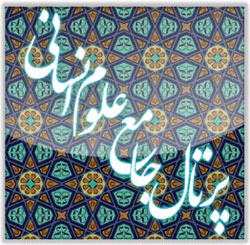The Evolution of Political Relations Between Qajar Iran and British India
Keywords:
Qajar Iranو, British India, Imperialism, World-System Theory, Colonial Relations, Iranian Foreign Policy, Viceroy of IndiaAbstract
This article explores the evolution of political relations between Qajar Iran and British India, analyzing these interactions within the broader framework of colonial structures and the global capitalist system of the nineteenth and early twentieth centuries. Utilizing a historical-analytical approach and drawing on archival documents, diplomatic correspondences, travelogues, and authoritative historical studies, the article argues that Britain’s policies toward Iran were primarily formulated and implemented through institutions based in British India. Consulates, political agents, and the Viceroy of India played a central role in managing relations with Iran, often acting independently from London. Employing the theoretical lenses of imperialism and Wallerstein’s world-system theory, the study demonstrates that Iran–India relations were shaped not by mutual interests but by colonial domination and structural power asymmetry. The behavior of the Qajar state is interpreted as a blend of selective accommodation and limited resistance, largely influenced by the regime’s structural weaknesses in politics, military, and economy. The findings reveal that Iran’s entanglement with British India had profound effects on its national security, territorial integrity, economy, and the rise of anti-colonial discourse. The article also highlights the necessity of future studies on Iran’s interactions with other British colonial entities such as Aden, Muscat, and the Persian Gulf, emphasizing the strategic role of colonies in shaping global imperial policies.
Downloads
References
Ansari, A. M. (2012). The Politics of Nationalism in Modern Iran. Cambridge University Press.
Bayly, C. A. (1988). Indian Society and the Making of the British Empire. Cambridge University Press.
Curzon, G. N. (1892). Persia and the Persian Question (Vol. 1–2). Longmans, Green and Co.
Dalrymple, W. (2019). The Anarchy: The Relentless Rise of the East India Company. Bloomsbury Publishing.
Hopkirk, P. (1990). The Great Game: On Secret Service in High Asia. John Murray.
Ingram, E. (1979). In Defence of British India: Great Britain in the Middle East, 1775–1842. Frank Cass.
Katouzian, H. (2003). Iranian History and Politics: The Dialectic of State and Society. Routledge.
Kazemzadeh, F. (1956). Russia and Britain in Persia, 1864–1914: A Study in Imperialism. Yale University Press.
Mackenzie, D. (1970). The Lion and the Dragon: British Voices from the China Wars, 1840–1900. Trafalgar Square.
Meyer, K. E., & Brysac, S. B. (1999). Tournament of Shadows: The Great Game and the Race for Empire in Central Asia. Counterpoint.
Minorsky, V. (1955). Studies in Caucasian History. Cambridge University Press.
Takmil Homayoun, N. (1994). Tarikh-e Ravabet-e Siasi-e Iran va Engelis dar Dowrān-e Qājār. Tehran: Markaz-e Asnad-e Tarikhi.









